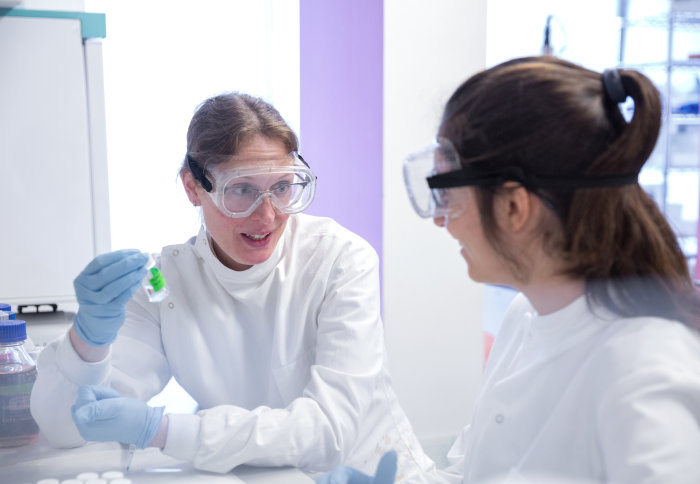Researchers offered ‘quick and easy’ grants to get medical innovations started

A scheme is offering grants to help Imperial researchers test ideas for translating their research into new drugs, diagnostics or medical devices.
Universities are an important source of innovation in healthcare, with research in medicine, engineering and the natural sciences driving the development of new therapeutics, diagnostics and devices.
To enter the development pathway, a researcher must establish that their concept has potential to effectively meet a market need. With the Imperial Confidence in Concept programme (ICiC), selected Imperial researchers are awarded up to £80,000 for projects of up to 12 months aimed at generating proofs of concept. The projects put researchers in a strong position to secure the further funding they will need to bring their products to market. The £8.5 million awarded by the scheme to date has so far led to researchers securing £73 million in follow-on funding.
Professor Roberto Solari, visiting professor at the National Heart & Lung Institute and Chair of the ICiC Panel, said that applying for the ICiC funding is simple: “Applying for an ICiC grant only requires a short proposal. It’s quick and easy. The idea is to get you to the next stage of funding.”
Expressions of interest in the current round of ICiC are open until midday on Wednesday 27 March.
The scheme is managed by the Faculty of Medicine, and funded by the Higher Education Innovation Fund, the Medical Research Council, the National Institute for Health Research Imperial Biomedical Research Centre, the Royal Marsden, the Wellcome Trust, and United Kingdom Research and Innovations Impact Acceleration Accounts. Industry partners such as AstraZeneca also contribute to selected projects.
Gene therapy success
Professors Uta Griesenbach and Eric Alton used ICiC to establish a proof-of concept for a gene therapy they are developing for haemophilia. By transferring a gene to the lungs using a lentivirus, the therapy turns the lungs into ‘factories’ for producing a protein called Factor VIII, which is important in blood clotting.

ICiC enabled Professors Griesenbach and Alton to generate important pilot data that helped them obtain a large Wellcome Trust grant last year to continue the work. “The ICiC funding was very valuable in helping us get to this stage”, Professor Griesenbach said.
The team is currently working on a new ICiC project to develop another gene therapy, again using a lentiviral vector, to treat pulmonary alveolar proteinosis. They have had their outline application approved for a further grant from the Medical Research Council’s Developmental Pathway Funding Scheme.
Professor Griesenbach added: “I’ve been working on gene therapy for 20 years. We’ve reached an era where gene therapies are becoming licensed treatments, so there’s a lot of interest and excitement in the field. Without ICiC, we would not have been able to generate our proof-of-concept data or it would at least have been difficult to find the funding.”
Drug discovery

The AstraZeneca Innovation Fund is part of ICiC and specifically offers funding for drug discovery carried out in collaboration with the biopharmaceutical company.
Dr Jonathan Wingfield, Principal Scientist at AstraZeneca, told an audience at the ICiC launch in February that the company is increasingly looking to collaborate with academics.
According to current estimates, it takes approximately 10-12 years and costs in the region of $3 billion to bring a drug to market, so the challenge facing the pharmaceutical industry is to reduce the time and cost. Failures in the clinical phase of drug development have a significant financial impact, so identifying programmes that are likely to fail before they get to the clinic is key.
Dr Wingfield said that achieving this requires us to improve our understanding of disease and improve our disease models so that they better reflect patients. He added that AstraZeneca recognises the value of academic experts, who often have acquired a deep knowledge of a disease pathway or disease model.
Entrepreneurial ecosystem
The College’s Industry Partnerships and Commercialisation team helps researchers take inventions out of the laboratory, protect them through intellectual property and turn them into commercial opportunities.
They are part of Imperial’s wider ecosystem of activities and support services that promote collaboration with industry and support entrepreneurial researchers and students. You can learn more about the College’s work in this area in the annual Review of Enterprising Activity.
Article supporters
Article text (excluding photos or graphics) © Imperial College London.
Photos and graphics subject to third party copyright used with permission or © Imperial College London.
Reporter
David Silverman
Communications Division